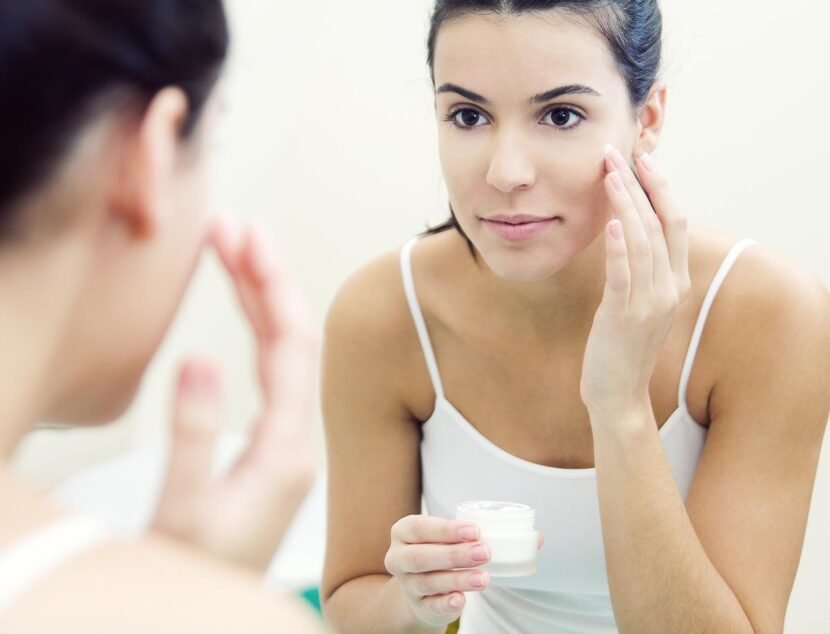Eczema, also known as atopic dermatitis, is a chronic skin condition characterized by dry, itchy, and inflamed skin. It predominantly affects children but can also occur in adults. Eczema-prone skin exhibits a compromised skin barrier, making it more vulnerable to irritants and allergens.
This vulnerability can result in flare-ups, which are periods of intensified itching and redness. The precise etiology of eczema remains unclear, but it is believed to stem from a combination of genetic predisposition and environmental factors. Common triggers for eczema flare-ups include stress, certain foods, harsh soaps, and climatic changes.
Managing eczema-prone skin requires specialized care to maintain hydration and prevent flare-ups. It is essential to use mild, fragrance-free products that do not further irritate the skin. Moreover, it is crucial to refrain from scratching affected areas, as this can exacerbate inflammation and potentially lead to infection.
Comprehending the specific requirements of eczema-prone skin is fundamental to effectively managing the condition.
Key Takeaways
- Eczema-prone skin is characterized by dryness, itchiness, and inflammation, and requires special care and attention.
- When choosing a moisturizer for eczema, look for products that are fragrance-free, hypoallergenic, and contain ingredients like ceramides and hyaluronic acid to help repair and hydrate the skin barrier.
- When applying moisturizer to eczema-prone skin, it’s important to do so immediately after bathing or showering to lock in moisture, and to use gentle, patting motions to avoid further irritation.
- Incorporating moisturizing into eczema treatment can help manage symptoms and prevent flare-ups, as well as improve the overall health and appearance of the skin.
- Proper moisturizing can help prevent eczema flare-ups by keeping the skin hydrated and protected, and by avoiding triggers like harsh soaps and extreme temperatures.
- Additional tips for effective moisturizing for eczema-prone skin include using a humidifier, wearing soft, breathable fabrics, and avoiding scratching or rubbing the skin.
- Consistent moisturizing is crucial for eczema relief, as it helps to repair the skin barrier, reduce inflammation, and improve overall skin health.
Choosing the Right Moisturizer for Eczema
When it comes to choosing a moisturizer for eczema-prone skin, it is important to look for products that are specifically formulated for sensitive skin. Look for moisturizers that are fragrance-free, hypoallergenic, and free of common irritants such as parabens and dyes. It is also beneficial to choose a thicker, cream-based moisturizer rather than a lotion, as creams provide a stronger barrier to lock in moisture.
Ingredients to look for in a moisturizer for eczema-prone skin include ceramides, which help repair the skin barrier, and hyaluronic acid, which helps the skin retain moisture. Ointments such as petroleum jelly can also be effective for extremely dry and cracked skin. It is important to patch test any new moisturizer before applying it to larger areas of the body to ensure it does not cause further irritation.
Applying Moisturizer to Eczema-Prone Skin
When applying moisturizer to eczema-prone skin, it is important to do so immediately after bathing or showering while the skin is still damp. This helps lock in moisture and prevent the skin from drying out. Gently pat the skin dry with a soft towel and then apply the moisturizer liberally to the affected areas.
It is important to use gentle, downward strokes to avoid further irritation. For areas of particularly dry or cracked skin, consider applying a thicker layer of moisturizer and covering it with a bandage or dressing to help the skin heal. It is important to reapply moisturizer throughout the day as needed, especially during dry or cold weather.
Consistent and thorough application of moisturizer is key to managing eczema-prone skin.
Incorporating Moisturizing into Eczema Treatment
Moisturizing is a crucial component of eczema treatment. In addition to using a daily moisturizer, it may be beneficial to incorporate other treatments such as prescription topical corticosteroids or immunomodulators as directed by a healthcare professional. These medications can help reduce inflammation and itching associated with eczema flare-ups.
In some cases, wet wrap therapy may be recommended as part of eczema treatment. This involves applying a generous layer of moisturizer to the affected areas and then wrapping them in damp bandages or clothing to help the skin absorb moisture and reduce inflammation. It is important to follow the guidance of a healthcare professional when incorporating additional treatments into an eczema management plan.
Preventing Eczema Flare-Ups with Proper Moisturizing
Proper moisturizing is essential for preventing eczema flare-ups. By keeping the skin well-hydrated, the risk of dryness and itching is reduced. It is important to use a gentle cleanser when bathing and avoid hot water, as this can further dry out the skin.
After bathing, it is crucial to apply moisturizer immediately to lock in moisture and prevent the skin from becoming dry and irritated. In addition to regular moisturizing, it is important to identify and avoid triggers that can lead to eczema flare-ups. This may include certain fabrics, harsh soaps or detergents, stress, and certain foods.
By taking steps to minimize exposure to these triggers and consistently moisturizing the skin, it is possible to reduce the frequency and severity of eczema flare-ups.
Additional Tips for Effective Moisturizing for Eczema-Prone Skin
Environmental Adjustments
Using a humidifier in the home can help add moisture to the air and prevent the skin from becoming too dry.
Wardrobe Choices
Wearing soft, breathable fabrics such as cotton can also help reduce irritation.
Managing Itching and Hydration
It is important to avoid scratching the affected areas, as this can lead to further inflammation and potential infection. If itching is severe, consider using cold compresses or over-the-counter anti-itch creams to provide relief. Additionally, staying well-hydrated by drinking plenty of water can help keep the skin hydrated from the inside out.
The Importance of Consistent Moisturizing for Eczema Relief
In conclusion, consistent moisturizing is essential for managing eczema-prone skin. By choosing the right moisturizer and applying it correctly, it is possible to keep the skin well-hydrated and reduce the risk of flare-ups. In addition to moisturizing, it is important to incorporate other treatments as directed by a healthcare professional and take steps to prevent exposure to triggers that can exacerbate eczema symptoms.
By understanding the unique needs of eczema-prone skin and taking proactive steps to care for it, it is possible to find relief from the dryness and itching associated with this chronic condition. With consistent moisturizing and a comprehensive eczema management plan, it is possible to improve the overall health and comfort of eczema-prone skin.
FAQs
What is eczema-prone skin?
Eczema-prone skin refers to skin that is more susceptible to developing eczema, a condition characterized by red, itchy, and inflamed patches of skin. This type of skin is often dry, sensitive, and easily irritated.
Why is moisturizing important for eczema-prone skin?
Moisturizing is important for eczema-prone skin because it helps to restore and maintain the skin’s natural barrier, which is often compromised in individuals with eczema. This barrier function helps to retain moisture and protect the skin from irritants and allergens.
What are effective moisturizing techniques for eczema-prone skin?
Effective moisturizing techniques for eczema-prone skin include using a gentle, fragrance-free moisturizer, applying moisturizer immediately after bathing to lock in moisture, and using a humidifier to add moisture to the air in dry environments.
What ingredients should be avoided in moisturizers for eczema-prone skin?
Individuals with eczema-prone skin should avoid moisturizers that contain fragrances, alcohol, and other potential irritants. It is also important to avoid products with harsh preservatives and additives.
How often should moisturizer be applied to eczema-prone skin?
Moisturizer should be applied to eczema-prone skin at least twice a day, and more frequently if the skin feels dry or irritated. It is especially important to apply moisturizer after bathing or showering to help seal in moisture.
Can natural oils be used to moisturize eczema-prone skin?
Some natural oils, such as coconut oil, jojoba oil, and sunflower seed oil, can be used to moisturize eczema-prone skin. However, it is important to patch test these oils first to ensure they do not cause irritation, and to use them in conjunction with a gentle, fragrance-free moisturizer.




